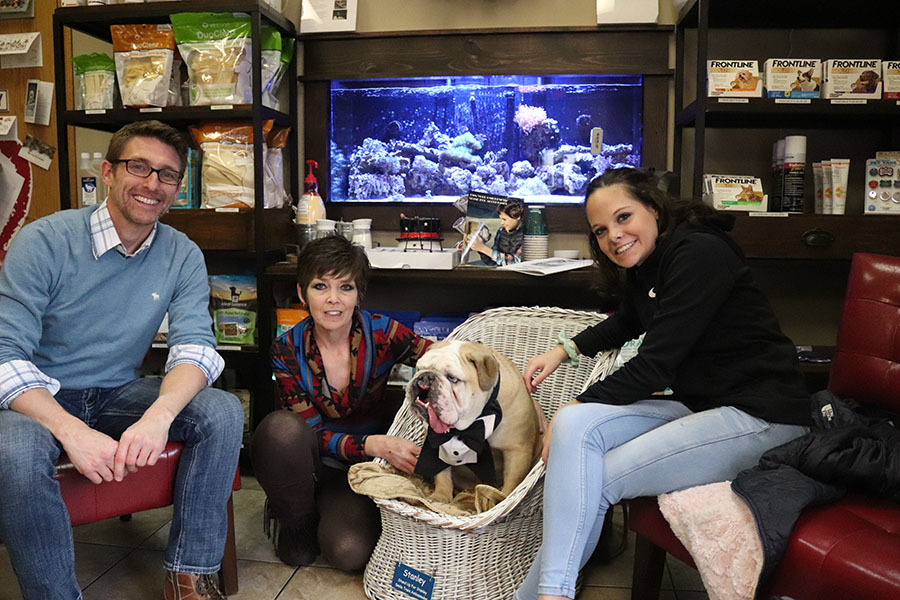Stanley the Bulldog, well known for his community appearances, is now one of the main characters in a book written Debbie Pack and Christina Calgi.
Pack is Stanley’s owner and has been a guiding force in getting him recognized by local municipalities and local governments for his work as an ambassador for anti-bullying. The bulldog was born with several deformities.
The book, which came out in December, is called Own Your Uniqueness: Stand for Acceptance. The book chronicles a Kearney teeanger, Elli Cunningham, who is able to return to school after cancer treatment with the help of Stanley the Bulldog.
Cunningham, 14, battled multiple cancers when she was 11 and found returning to school and being accepted again was hard. There are also different situations in the book, such as bullying, Pack said.
The book is being sold by the American Childhood Cancer Organization for $8 through their website. Pack noted the book sold out in four days once it was posted online on Dec. 12. All the money raised went toward children battling cancer.
Cunningham, now a student at Kearney Junior High, met Stanley the Bulldog, through her chemotherapy treatment for lung and kidney cancer.
“When I looked at other people, to me, I wasn’t so normal,” Cunningham said. “I just felt like I didn’t fit in. I didn’t have long hair. People judged me. I got called a boy. Every time I saw Stanley, I knew I could be just who I wanted to be. He has that personality. He is a dog that makes you want to be who you want to be ... who you are.”
While she was battling cancer, the Elli’s Ride was formed to help raise money for childhood cancer, where Stanley was an honorary rider. She would also bring things to Children’s Mercy, like paper and markers that other patients could use.
“She was trying to recover herself and she made it a point to help others,” Pack said.
Dr. Brian Hamm has been working with Stanley for four years and noted how animals provide a good example to follow.
“He’s got his face abnormalities and he doesn’t care and the other animals don’t care,” said Hamm, who has a practice in Kearney. “We need to train humans to behave that way. So people that have these issues can feel compassion from other humans and aren’t judging them or bullying them over it.
He used the analogy if people see a human with a missing leg or a disability, the empathy for the issue isn’t always there, but when a puppy or cat has an abnormality, people feel sorry for the animal.
“It will take parents getting involved with children to know bullying isn’t OK,” Hamm said. “Most behaviors are learned and passed down as being OK. We lose that empathy at some point and it turns into bullying. I’m not sure there is a pivotal age, but we stop feeling sorry for them.”


